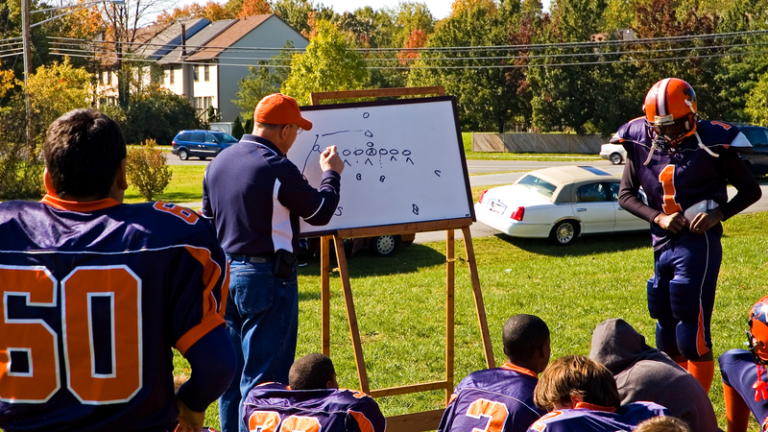
In the realm of football, success as a coach hinges on strategic prowess. Delve into some fundamental strategies outlined below, and witness an enhancement in your team’s performance, steering you towards greater triumphs.
Playing Personnel
Each coach possesses a diverse set of skills tailored to each position, and leveraging these skills is crucial. At the professional level, coaches have the luxury of selecting personnel that aligns with their game plan. However, not all coaches enjoy this privilege; sometimes, they must make do with the resources at hand. In essence, a coach must adapt to the strengths of their players, shaping the game plan accordingly. For instance, if a coach has speedy skill players but an undersized offensive line, opting for a spread offense over a run-heavy north/south or smash-mouth, two-tight-end set on offense would be more effective. This adjustment allows the players to thrive in open space rather than confined between the tackles.
Executing the Basics
Fundamental skills like running, passing, and tackling form the bedrock of football, and exceptional coaches ensure their athletes can execute these tasks with precision.
The mantra is repetition, repetition, repetition. Persistent practice of even the most basic tasks can result in mastering the fundamentals of football. Ultimately, this mastery becomes the linchpin for achieving victory on the field.
Having a Plan
Develop a strategy that aligns with your team’s strengths. Anticipate and prepare play calls for various scenarios. Drill your personnel substitution procedures during practice. Prepare a range of options for crucial moments in the game, ensuring your athletes feel at ease and confident in your decision-making during competitive situations.
Making Adjustments
Entering the game with a well-defined plan is essential, but unforeseen challenges from the opposition can disrupt your strategy.
As a coach, it’s crucial to promptly identify issues and implement changes to regain control.
This doesn’t imply abandoning the planned approach; instead, your strategy should be adaptable to address execution lapses in any aspect of play.
Neutralize
My guiding principle during a game is to “pressure someone other than the opposition’s top player to step up and make significant plays.” By nullifying the opponent’s primary options, less-experienced and less-skilled players are compelled to take on pivotal roles. On the offensive front, this might involve crowding the box to thwart a talented runner or double-teaming a star receiver. Defensively, strategies like doubling a formidable defensive end or avoiding excessive throws at a “shut-down” corner could be employed. Coaches aiming to neutralize the opposing team must start by negating their strengths.
To ascend to greatness, coaches need a diverse array of skills and talents, with strategy serving as the linchpin—furnishing coaches with a roadmap for success. If you’re aspiring to elevate your coaching prowess, consider incorporating these tactics both before and during your next matchup.







